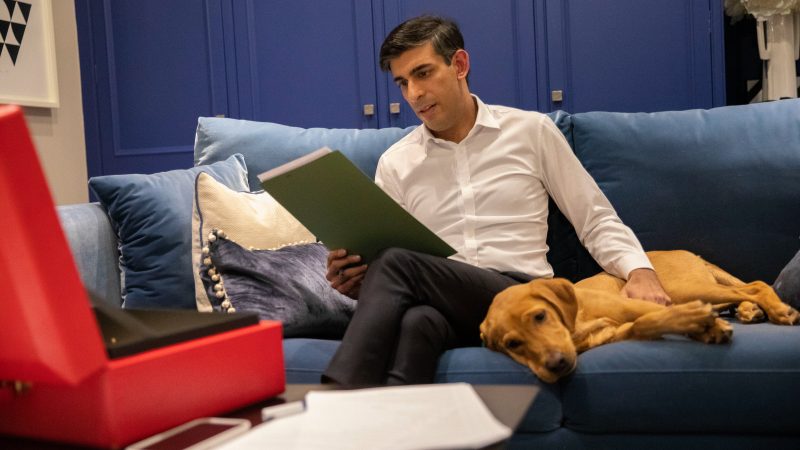
“I am virtually out of tools to help people now. It’s not something money management can fix,” Martin Lewis, the Money Saving Expert, told the BBC’s Sunday Morning. “We need political intervention.” Our rising cost of living is turning up the pressure on Rishi Sunak. The Chancellor does not like ‘Spring Statements’ – not Budgets! – to be major events: an economic update, a few tweaks, save the big stuff for the Autumn Budget. He wants Tory MPs to know he is a Thatcherite at heart and only implemented furlough (a key reason he is so popular with the rest of the country) because the pandemic gave him no choice.
There needs to be recognition that “government has limits”, the Chancellor insisted in October. Now he says the “government can’t solve every problem”, but also promises to “stand by” people. Last year, the Budget was bigger than expected, with announcements such as a rise in overall spending for every department. It was not a Labour Budget, though, as a tax cut for banks and lower air passenger duty for domestic flights were prioritised. Pleasing neither small-state Tories nor Labour: can we expect something similar from Sunak’s statement on Wednesday?
Rachel Reeves accused her opposite number in October of “loading the burden on working people” via the National Insurance rise, a council tax hike and no support on domestic energy bills. The cost-of-living crisis is now hitting home for more of us, as we all open our post to discover what the shocking rise in energy prices really means, and far too many face fuel poverty. In response, Labour is calling for a windfall tax on oil and gas companies and a VAT cut on energy bills, and for the imminent National Insurance hike to be scrapped. Sunak hinted at a fuel duty cut, and Reeves said the opposition would support the move though it would not be enough. Labour’s other suggestions do not seem likely to be taken up: the Chancellor rejects its energy policies as not sufficiently targeted, and defends the NI increase as necessary to address the NHS backlog.
The Resolution Foundation has been clear that the best way to tackle the inflation spike that could reach over 10% for poorer households is uprating benefits. The think tank suggests doing so by 8% in April, which would cost £9bn and reduce relative poverty by around 500,000. While much of Labour’s focus has been on its energy policies rather than benefits, Reeves revealed to The Observer over the weekend that she would raise benefits by about 6%, the expected rate of inflation for March, for millions on low incomes including pensioners. (Labour has an opposition day motion today highlighting the impact of the crisis on pensions, who face a “triple whammy” of “rising bills, real-terms cuts to the state pension and the National Insurance levy”.) “The Chancellor should look at how to uprate benefits in a fair way. They are supposed to go up by inflation and they are not at the moment,” Reeves said.
Renaissance director Joe Jervis has written for LabourList on how Labour can develop plans for a more resilient British economy in a way that will secure both prosperity and national security. “Britain has become the European capital for hostile takeovers,” he writes, and the country has “become increasingly over-reliant on foreign state-backed actors who do not have our best interests at heart”. With Progressive Britain, Renaissance hosts an online event at 7.30pm tonight with Labour frontbenchers and experts to discuss the topic – all Labour supporters are invited to join.
Sign up to LabourList’s morning email for everything Labour, every weekday morning.



More from LabourList
Economic stability for an uncertain world: Spring Statement 2026
‘Biggest investment programme in our history’: Welsh Labour commit to NHS revamp if successful in Senedd elections
James Frith and Sharon Hodgson promoted as government ministers